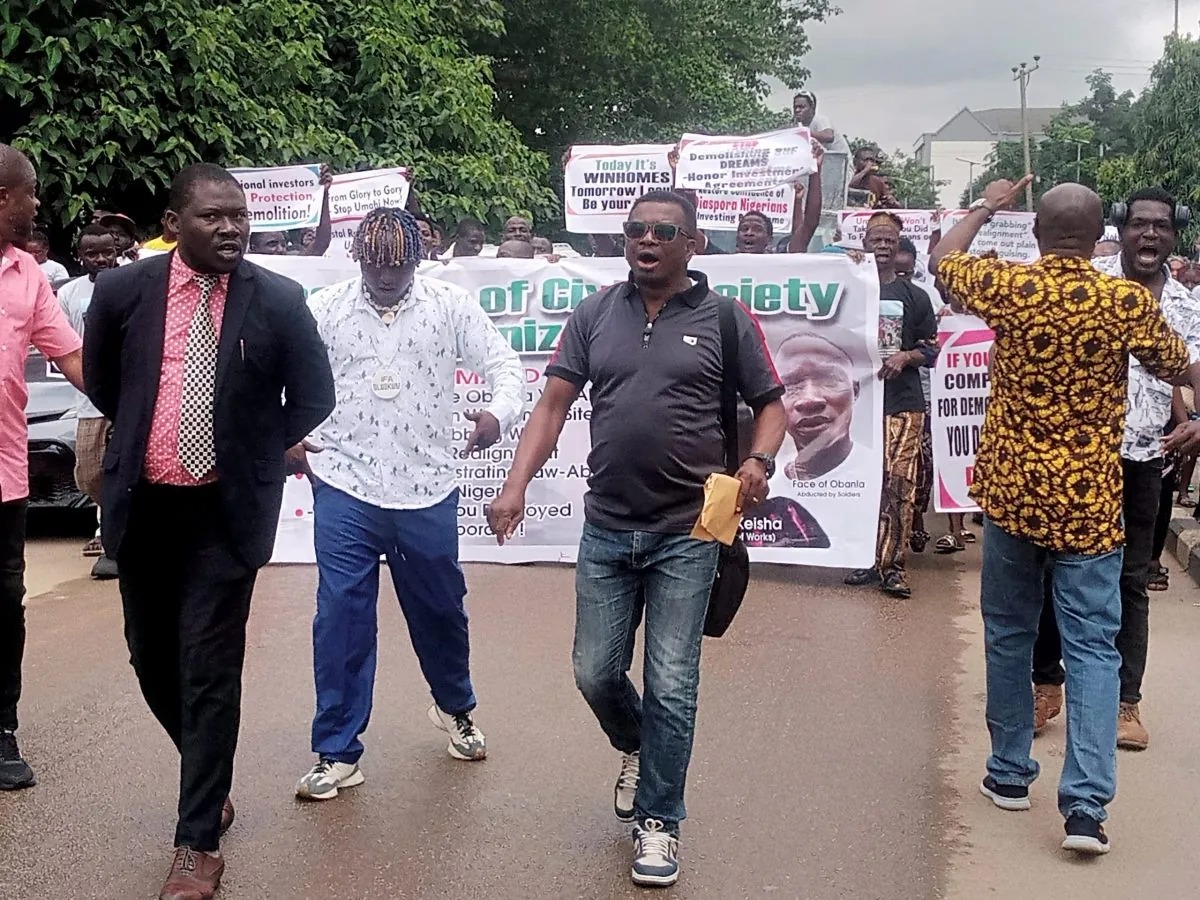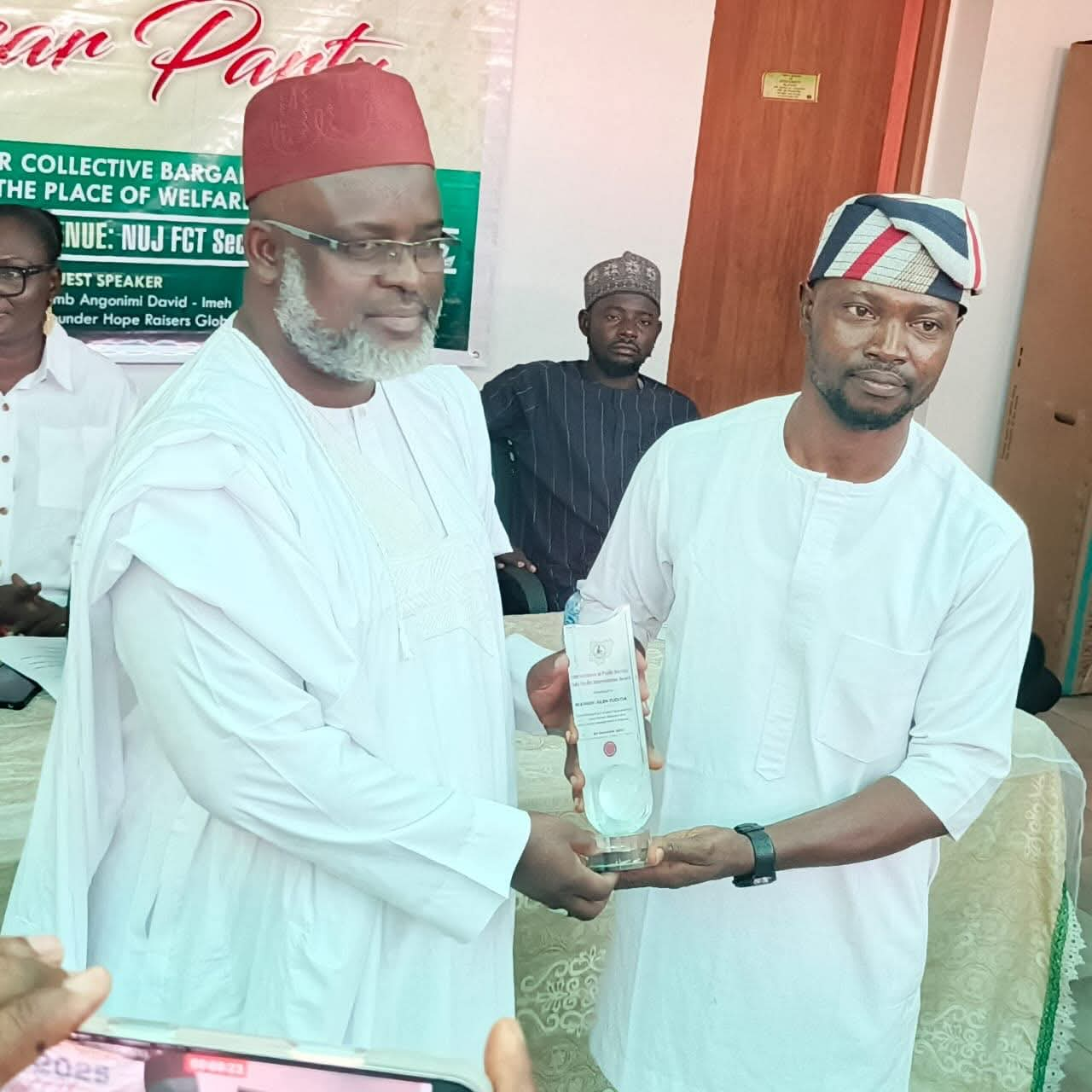In the heart of Nigeria’s capital, a wave of frustration boiled on Wednesday as dozens of displaced citizens took to the streets, demanding justice for the destruction of their properties along the path of the multi-billion-naira Lagos-Calabar Coastal Highway.
Gathered under the banner of the Coalition of Civil Rights Against Impunity (CCRAI), the protesters converged on the Federal Ministry of Works in Mabushi, Abuja, accusing the government of unlawful demolition, lack of compensation, and systemic disregard for citizens’ rights.
Clutching placards that read, “Ministry of Works is complicit in abrupt road diversion”, “International investors deserve protection, not demolition”, and “Free Obanla now”, the demonstrators voiced a growing sentiment across many Nigerian communities, that national development must not come at the expense of human dignity.
Leading the protest were civic rights advocates Declan Ihekaire and Shina Loremikan, who criticized the Federal Government’s handling of the highway project, accusing it of bulldozing properties with valid Certificates of Occupancy, often without notice or due process.
Ihekaire said, “There is nothing wrong with building a road but everything is wrong with destroying people’s legitimate investments, many of which were funded by hard-earned money from Nigerians abroad, without compensation or a word of warning.”
He warned that such disregard not only discourages diaspora investment but also erodes public confidence in national infrastructure initiatives. “This kind of impunity undermines the very foundation of trust upon which progress must be built,” lamented
Ihekaire drew attention to what many see as a troubling contradiction in government priorities: while national sports teams recently received generous cash rewards, up to ₦150 million each, ordinary citizens whose homes and businesses have been razed are left in silence and suffering. “They worked hard too. They contributed to this economy. Their rights must matter just as much,” he argued.
The coalition also raised concerns over the alleged disappearance of a young activist, Obanla, who was reportedly taken by security forces during a prior protest. His whereabouts remain unknown, raising fears of unlawful detention or worse. Ihekaire said, “He stood up for what was right and vanished. This cannot be the cost of speaking truth to power.”
Co-organiser Shina Loremikan called for a full investigation by the National Assembly into the actions of the Ministry of Works, insisting that Minister David Umahi be held accountable for the human toll of the project. Loremikan said, “Let it be known that we are not against development. But development must be rooted in empathy, equity, and the rule of law. “A government that invites investment cannot turn around to destroy the very fruits of that investment without recourse,” he noted.
Wednesday’s protest in Abuja follows earlier demonstrations at the Lagos State Ministry of Lands. The action was a reflection of the growing public discontent with the 700-kilometre Lagos-Calabar coastal highway, a project the government has touted as a game-changer for regional integration and economic growth.
While the highway has received praise in some quarters as a symbol of modern infrastructure, critics argue that its implementation has been marred by lack of transparency, forced evictions, and a seeming disregard for human rights.
Efforts to obtain a response from the Federal Ministry of Works proved unsuccessful. No spokesperson was available at press time, and Minister Umahi was reportedly out of town. The CCRAI has vowed to sustain its nationwide protests until displaced citizens are compensated and accountability is served. Ihekaire said, “This is about more than bricks and mortar. “It’s about justice, fairness, and the soul of our democracy. “ If this kind of state-sanctioned violation is allowed to go unchallenged, then no one, no home, no business, is truly safe.”
As the Lagos-Calabar Coastal Highway forges ahead, so too does a rising chorus of voices demanding a more humane approach to development, one that places people, not just pavement, at the center of progress.





